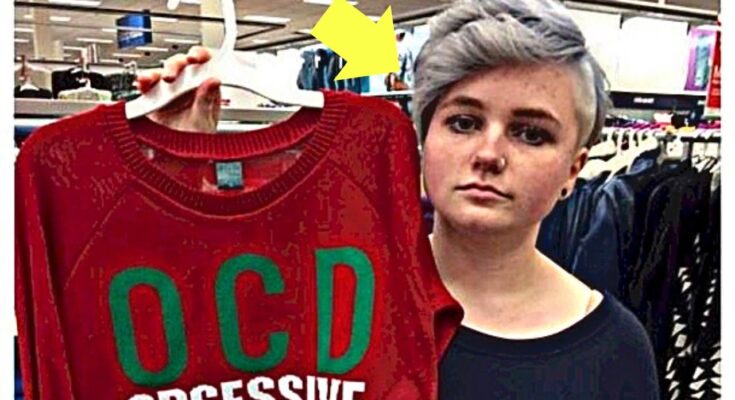
Sweater Sparks Outrage: Target’s Blunt Response to Customer Complaint
Retail giant Target has once again found itself at the center of controversy after a shopper called out one of its sweater designs as “deeply offensive.” The woman, who took to social media to express her outrage, claimed that the wording on the sweater carried an inappropriate or insensitive message. However, rather than issuing an apology or pulling the item from shelves, Target had a rather blunt response: Get over it.
The debate began when a customer posted a photo of the sweater online, urging Target to reconsider selling the item. She argued that the words printed on the clothing were not only inappropriate but also potentially offensive to certain groups. While the exact wording of the sweater remains unclear, her passionate reaction sparked an intense discussion on social media.

Some users supported her stance, stating that companies should be more mindful of their product designs and the messages they promote. Others, however, dismissed the complaint as an overreaction, with many arguing that people have become too easily offended over trivial matters.
Target, known for its inclusive marketing and willingness to listen to customer feedback, surprised many with its response. Instead of addressing the complaint with a typical corporate apology, the retailer reportedly took a firm stance, implying that the issue was blown out of proportion. “We appreciate customer feedback, but we stand by our products,” a spokesperson allegedly said, adding that customers who do not like a product are free to shop elsewhere.
This response only fueled the online debate, with opinions becoming even more divided. Some praised Target for not giving in to what they viewed as unnecessary outrage, while others criticized the company for not taking customer concerns seriously.

Over the years, Target has faced similar controversies involving its product selections. From holiday-themed decorations to graphic T-shirts with bold slogans, the retailer has had its fair share of backlash. However, in this case, the brand appears to have taken a firmer stance rather than making changes based on public opinion.
Experts in consumer behavior suggest that companies like Target must balance their response strategies. While acknowledging customer concerns is important, constantly removing or modifying products due to complaints can set a precedent that may not be beneficial in the long run. Some believe that Target’s reaction reflects a shift in how major retailers handle public criticism—choosing to stand by their products rather than bowing to every complaint.
Ultimately, the controversy raises larger questions about the fine line between offensive content and personal interpretation. Should companies be responsible for ensuring that every product is free of potential offense, or should consumers take personal responsibility by simply choosing not to buy items they dislike?
While the debate continues, one thing is certain: Target’s blunt response has set a new precedent in retail controversies. Whether customers find it refreshing or disappointing, it sends a clear message—sometimes, not every complaint warrants action.



